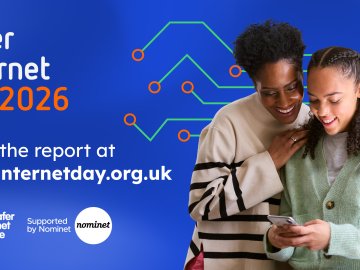Instagram along with Facebook and Messenger, has announced additional built-in protections for Teen Accounts. These measures, including parental permissions for live streaming and stronger boundaries around image-sharing in DMs, signal a positive move to enhance protections across social media.
The figures shared by Meta are promising. With 97% of teens aged 13-15 remaining within the protective settings of Teen Accounts, and over 54 million teens globally now benefiting from stricter content filters and messaging controls, it’s encouraging to see that these default features are evidently making a difference. The expansion of these protections to Facebook and Messenger is a logical and welcome step that further supports a consistent approach across platforms.
However, we must emphasise that no technical solution (no matter how comprehensive) can replace the value of meaningful, ongoing dialogue between young people and trusted adults about their online lives.
Technology as a Support, Not a Substitute
Built-in protections and automated settings are important tools in reducing exposure to harm. But technology cannot teach young people why a message is inappropriate, when to report something, or how to critically evaluate the content they consume and engage with. These are lessons learned through conversation, education, and trusted guidance, not through algorithms.
For young people to build resilience online, they must be empowered with the skills to think critically, recognise red flags, and feel confident seeking help when something doesn’t feel right. This means schools, parents, carers, and professionals all have a vital role to play in supporting digital literacy and encouraging open, honest discussions about their digital lives.
Widening the Support
It’s encouraging to see that 94% of parents surveyed by Meta find Teen Accounts helpful, with 85% feeling these tools make it easier to support their child’s experience online. These insights reinforce that when parents are engaged and supported, their involvement becomes a powerful protective factor in a young person’s digital journey.
We encourage parents to go beyond relying on platform settings alone. Take the opportunity to explore your child’s digital world with them. Ask open-ended questions about who they connect with online, what they enjoy, what worries them, and what they would do if they encountered something harmful. These conversations not only build trust but also equip young people with a clear sense of what to do when facing risk.
Moving Forward
Meta’s latest update is a step in the right direction and highlights the importance of listening to parent concerns and acting on them. But improving online protections requires more than features, it requires education, communication and collaboration.
For more information on how to stay safe on Instagram, you can download the free privacy and security checklist on our website.






